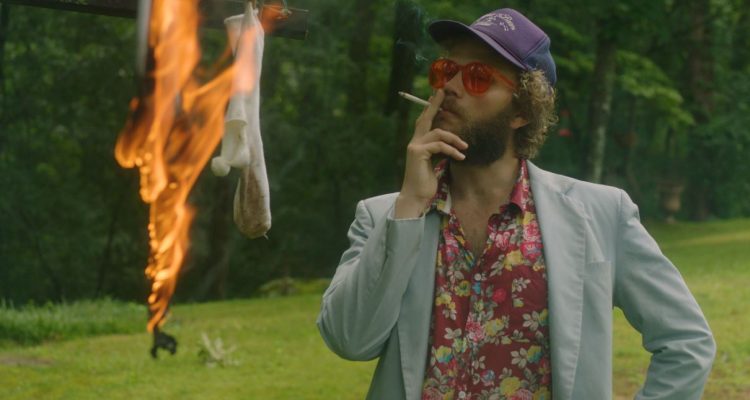A stunningly indulgent and self-aggrandizing love letter to a one man’s personal story, “Socks on Fire” underachieves and disappoints beyond all expectations. Credit should be given to director Bo McGuire for the spectacular audacity needed to repeatedly derail his own documentary’s story so that interview subjects can instead talk about him—yet this is where any praise should end. Unmoored from any larger discussion about class, race, religion, or socioeconomic stratification, McGuire’s documentary tries to tell just one family’s story, albeit dripping with bias, but can’t even manage that very well.
READ MORE: Tribeca 2020 To Move Online With Select Content Open To The Public
Ostensibly the tale of one Alabama family’s disintegration after the passing of a matriarch without a will, McGuire’s film is a mixture of stream of conscious monologues, dramatic reenactments, old home videos, and talking-head testimonials. McGuire’s mother is the daughter of “Nanna,” and the sister to Aunt Sharon and Uncle John. Although Nanna made passing comments about how she wanted her estate broken up after her passing, she never formalized these wishes in a will, leaving everything up for grabs following her death.
McGuire explains that his family had always been a tight-knit group during Nanna’s lifetime, but following her passing, Aunt Sharon moved to consolidate her hold over her mother’s estate at the expense of her siblings (particularly John). Early on, however, it becomes clear that McGuire can’t quite help himself, derailing much of the momentum of the documentary so that he can explore his own past.
READ MORE: ‘Wake Up On Mars’ Tenderly Explores The Effects Of Unspeakable Trauma [Tribeca Review]
The whole thing is presented in a foggy, dreamlike mist that is all the more jarring because it presents like something rich with subtext and importance, yet it never rises above the painfully ordinary, routine family drama that it showcases. McGuire is selling this like it is some sprawling testament to America and the south, but he never connects any of this to something larger than itself. It’s “Midnight in the Garden of Dull and Indulgent”—with several side-trips into the past of a director who is somehow even less interesting.
Another problem the documentary has is one of perspective. McGuire says at one point that all Nanna cared about was that John gets her house after she died. But this is all according to John, McGuire, and “Mamma” – the audience can’t know what really happened. Nanna left no will, which is the source of all this contention, so what this really feels like is one side of a family’s take on a nasty, personal squabble. Maybe McGuire’s version is the truth, but it’s hard to muster even the littlest amount of sympathy for any of these people and their drama when there’s nothing here to convince one that either side is right.
Whatever time might have been spent making this relevant to the audience is wasted in several sidetracked conversations about McGuire and what he was like as a kid. Which begs the question this documentary never answers: is this Uncle John and Aunt Sharon’s story or Bo McGuire’s? Yes, they’re all one family, and I’m sure in McGuire’s head, it’s all one tangled web of family, history, and identity, but the dots just don’t connect. At one moment the film will be drilling down into John’s emergence as a drag performer and Aunt Sharon’s growing homophobia, then things shift into an interview where McGuire asks something like, “When you think about me young, how would you describe me?”
It’s an interesting question that absolutely does not belong in this movie and contributes nothing to the overall narrative (itself elusive). Yet McGuire’s tendency to bring the story back to himself is just one example of the runaway self-indulgence of “Socks on Fire,” which violates the cardinal sin of any documentary: supplanting the subject with the filmmaker. McGuire pacing in front of a sunset reciting a self-penned monologue makes Matthew McConaughey’s Lincoln commercials look like the picture of restrained modesty, and again, contributes nothing to the narrative thrust of the documentary.
Visually, this self-aggrandizing indulgence blasts through as well. At one point, “Socks on Fire” detours to talk about the argument over who got Nanna’s prized cedar chest after her death: the battle over which is treated with all the reverence and importance of the Holy Grail in an “Indiana Jones” film. The fact that the story of its contentious ownership is staged and shot like a dream sequence in the “Red Shoe Diaries” gives it a preposterous flavor that does not align with its overall value to the story McGuire (sometimes) is trying to tell.
And what story is that? It’s hard to say, and McGuire doesn’t make it any easier. Do yourself a favor and skip any attempt to find out. [F]
Click here for more coverage of the 2020 Tribeca Film Festival.

